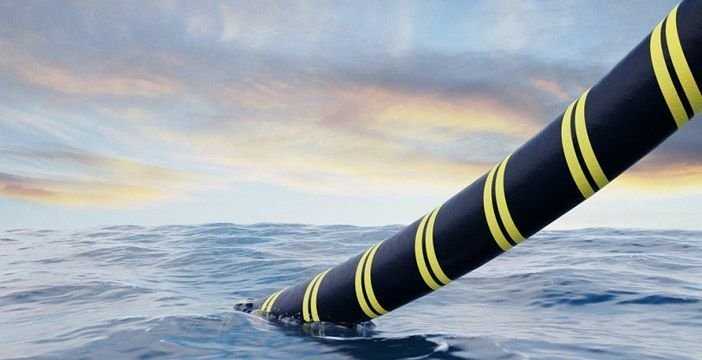On Sunday in Algiers, Mohamed Arkab, Algeria’s Minister of Energy and Mines, announced a groundbreaking project that underscores the country’s ambition to become a key player in the international energy market. The state-owned energy giants Sonatrach and Sonelgaz are set to sign contracts with international partners for the construction of a submarine power cable that will link Algeria to Europe. This infrastructure will enable Algeria to export both conventional electricity, produced from natural gas, and renewable energy to the European continent.
Project Overview and Significance
The announcement, made during Arkab’s visit to the headquarters of Sonelgaz’s Electricity System Operator (OSE), highlighted the historic nature of this project. Arkab emphasized that preparations are well underway for the signing of these contracts, which will pave the way for the commencement of work on the submarine cable. He stated, “This project will not only enable Algeria to diversify its energy exports but also reinforce its strategic position as a key energy supplier to Europe” (Eni, an integrated energy company).
International Partnerships
Italy
Italy is a central partner in this initiative. The submarine cable will connect Algeria’s eastern coast, specifically the El-Chafia region, with the Italian island of Sardinia. This connection will facilitate the exchange of up to 2,000 megawatts of electricity between the two countries. The collaboration underscores Italy’s strategic interest in securing a diversified and stable energy supply. High-level discussions took place between Algerian and Italian officials, including a meeting in Rome between Mourad Adjal, CEO of Sonelgaz, and Roberto Cingolani, Italy’s Minister of Ecological Transition (Arab News) (subcablenews.com).
European Union (EU)
The EU is providing substantial funding for this project, reflecting its commitment to enhancing energy security and integration within the Mediterranean region. The EU’s involvement ensures that the project aligns with broader European energy policies aimed at increasing the share of renewable energy and reducing dependency on a single energy source. The EU funding is crucial for the project’s development, highlighting the geopolitical and economic significance of Algeria as a reliable energy partner for Europe (subcablenews.com).
Economic and Environmental Impact
Economically, this project is poised to generate substantial revenue for Algeria. By exporting electricity, Algeria can tap into the lucrative European energy market, which is actively seeking to diversify its energy sources and reduce reliance on fossil fuels. This project represents a significant economic opportunity for Algeria, as it will bring in revenue that can be reinvested in further developing its energy infrastructure and other sectors of the economy.
Environmentally, the project supports Algeria’s commitment to increasing its renewable energy production. This aligns with global efforts to combat climate change by reducing greenhouse gas emissions and promoting sustainable energy solutions. The ability to export renewable energy will also enhance Algeria’s role in global environmental sustainability efforts.
Technological and Engineering Challenges
The construction of the submarine power cable is a complex engineering feat that will involve laying high-capacity electrical cables under the Mediterranean Sea. This infrastructure will require state-of-the-art technology to ensure efficiency and reliability. The involvement of international partners suggests that the project will benefit from global expertise in submarine cable technology and energy transmission.
Future Prospects
The successful implementation of the Algeria-Italy submarine cable could set a precedent for future energy export initiatives in Algeria. It could potentially lead to the development of more submarine cables, connecting Algeria to other parts of the world and enhancing its role in the global energy market. Moreover, this project could spur further investments in Algeria’s renewable energy sector, fostering technological innovation and infrastructure development within the country.
Conclusion
Mohamed Arkab’s announcement marks a pivotal moment for Algeria’s energy sector. The submarine power cable project not only highlights the country’s strategic move towards diversifying its energy exports but also reinforces its commitment to sustainability and international cooperation. As preparations continue and contracts are signed, Algeria is set to enhance its position as a key energy supplier to Europe, contributing to the global shift towards cleaner energy solutions.
For more detailed information, you can refer to the comprehensive coverage by Arab News and SubCableNews.





